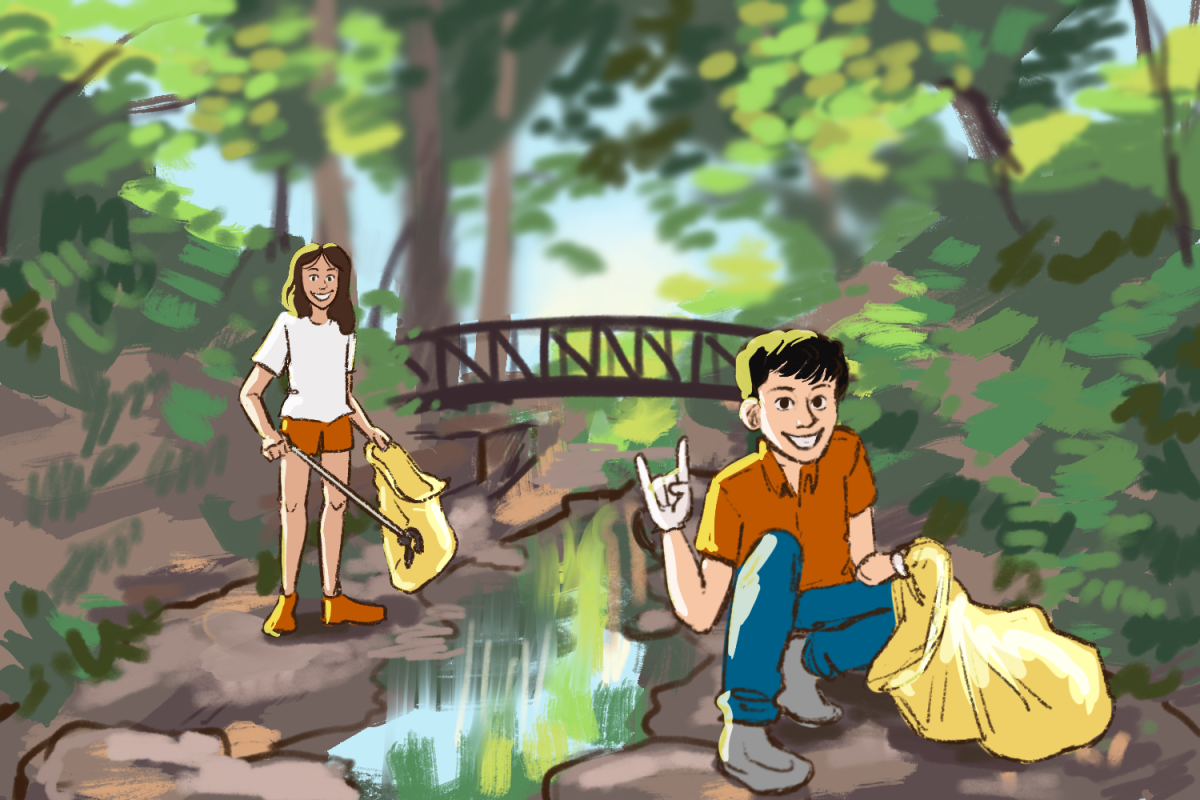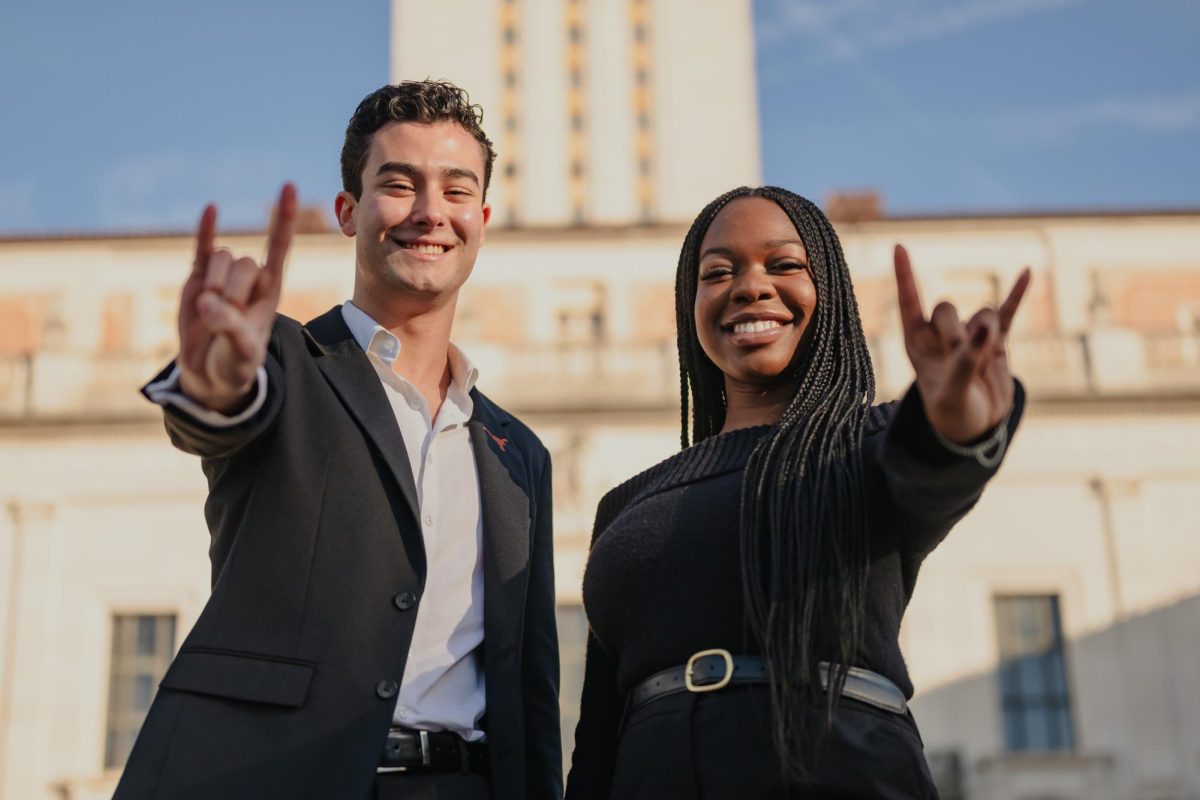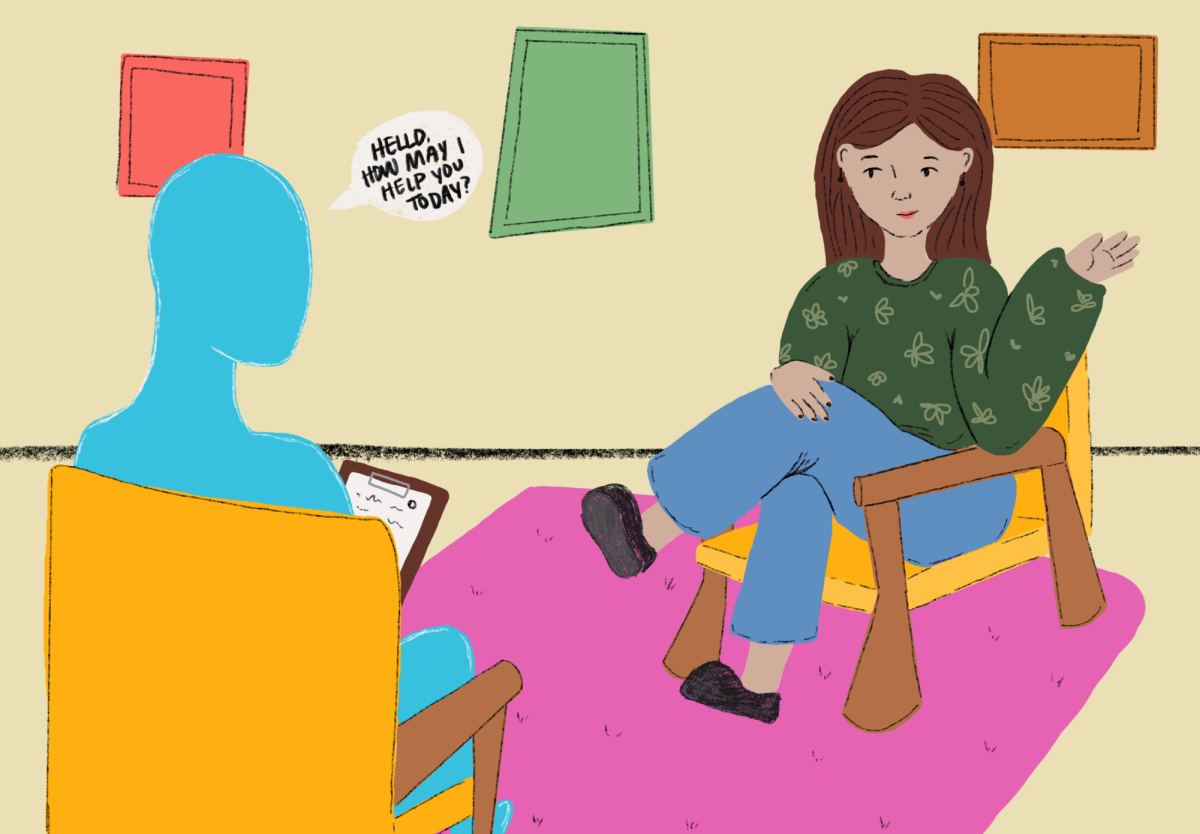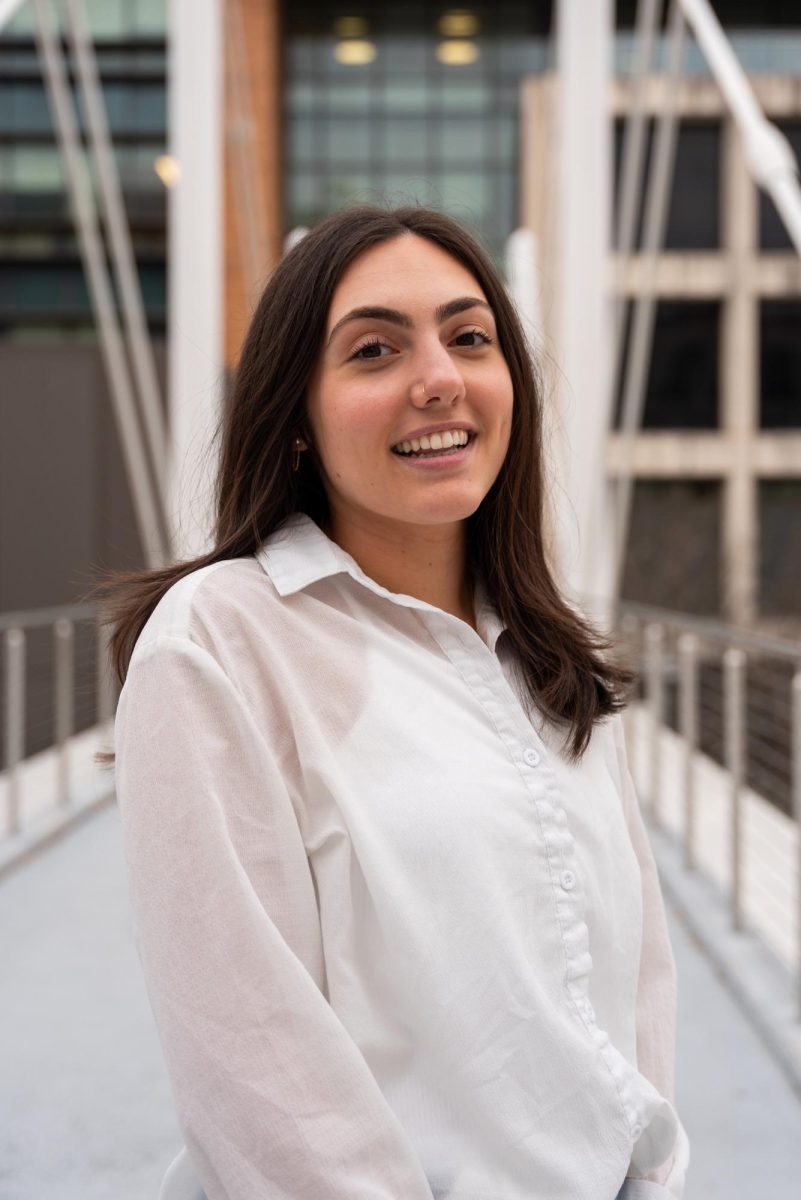My volunteering outlet — sorting UT clothing donations — is not a glamorous job. Accidentally touching mysterious stains, dirty socks and undergarments is gross and out of character for my germaphobe tendencies. However, watching UT students adopt garments that would otherwise be thrown away makes up for any grossness since I can share and see others appreciate sustainable fashion.
Compared to raising money or spreading awareness for charity, volunteering in-person lowers stress and strengthens self-efficacy. Self-efficacy is one’s perception of their possible impact and ability, and students with low self-efficacy tend to underestimate and limit themselves. With strong self-efficacy linked to higher rates of happiness and employment, UT students should consider adding in-person volunteering to their schedules.
Cindy Mellen, a chemistry and radio-television-film junior, came to UT with a love for sustainability, but joining the Beevo Beekeeping Society allowed her to fully immerse herself in her passion for the Earth.
“I definitely have had points where I think, ‘Wow, I can’t believe I’m so involved in beekeeping,’” Mellen said. “Who would have thought (freshman year) me, who was terrified of bugs, is now advocating for these bees and pollinators.”
Volunteering in-person builds a stronger relationship between oneself, their passion and sense of purpose. Visibly seeing the impact of your actions can remind you of your capability to inspire positive change.
“All these native plants can grow and bloom because of bees … it’s really rewarding to see,” Mellen said. “I want to keep this like Earth, safe and beautiful because it brings me so much joy.”
Especially during stressful exam seasons, overworked students may question what they are working toward or whether the stress is worth it. Volunteering in-person can remind students of their goals and reignite the passion that started their academic journey in the first place.
Although the majority of student organizations base their community service on philanthropic fundraising, students should also consider browsing the Center for Community Engagement and HornsLink for in-person opportunities to improve their well-being and others’ quality of life.
UT resources helped Eri Pilon, Plan II and neuroscience sophomore, find her passion for Camp Kesem, a national organization that helps kids whose parents have cancer feel less alone.
“I spent so much of my life really focused on academics and getting good grades,” Pilon said. “When I go interact with the kids … the impact is so much greater than just writing an essay or sitting in a classroom taking notes.”
While traveling and participating in in-person volunteering opportunities may require more commitment than fundraising, fundraising doesn’t allow you to build relationships with the people you impact.
“The kids are what keeps me coming back every single week,” Pilon said. “I know that I’m going to directly benefit people that I’ve seen in person and interacted with.”
In-person volunteering ignites a sense of purpose and self-efficacy. While volunteering is often considered a chore or simply performed to check a box, students should consider volunteering in-person as a ritual of self-improvement, benefiting themselves and others. Just like students carve out time to call family or clean their rooms, they should add volunteering to their weekly priorities.
Eades is a Plan II and journalism sophomore from Dallas, Texas.














